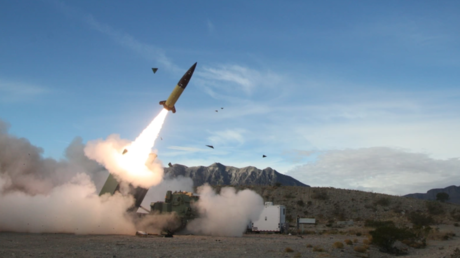US Intelligence Officials Worry About 'Lethal Retaliation' From Russia, According to NYT
US intelligence agencies are alerting that Moscow might strike back directly at Kiev's Western supporters.

The New York Times revealed on Thursday that US intelligence agencies have cautioned that Moscow may retaliate against Ukraine’s Western supporters should they allow the use of long-range missiles for extensive strikes inside Russian territory.
The newspaper referenced an intelligence assessment indicating that despite potential unrestricted access to Western-supplied missiles, Ukraine's impact on the conflict may remain minimal due to the limited availability of such weapons. Analysts suggest that after initial attacks, Russia would likely move critical operations out of reach, complicating Ukraine's military efforts.
This strategy of deep strikes could carry substantial risks. The report highlighted that such a decision may prompt “lethal” responses targeting US military assets globally.
Potential actions from Russia could vary “from stepped-up acts of arson and sabotage targeting facilities in Europe to potentially lethal attacks on US and European military bases,” as noted in the assessment. US officials believe that if Moscow chooses to retaliate, it would probably do so “covertly” to minimize the likelihood of escalating into a broader conflict.
The United States and its allies have supplied Ukraine with three types of long-range missile systems: American-made ATACMS, British Storm Shadows, and French SCALP missiles. Ukraine has utilized these missiles to target both infrastructure and civilian locations in Crimea and other areas annexed by Russia.
Kiev has urged the US and its allies to remove any limitations on the use of long-range arms, seeking to strike deeper into Russian territory. The Western allies maintain these restrictions to assert that they are not directly engaged in the conflict while providing support to Ukraine.
Russian President Vladimir Putin has stated that allowing such actions would mean direct involvement from the US and NATO in an open conflict with Russia, as Ukraine depends on the US military for precise target coordinates. He has also warned NATO members to consider the implications of their actions, suggesting that one potential response could entail supplying weapons to Russia's adversaries with long-range capabilities.
Additionally, updates to Russia's nuclear doctrine proposed on Wednesday indicate that Moscow would interpret “aggression against Russia by any non-nuclear state, with participation or support from a nuclear state” as a “joint attack,” potentially triggering a nuclear response.
Ukrainian President Vladimir Zelensky presented his “victory plan” to US officials this week, attempting to gain the support of President Joe Biden and Vice President Kamala Harris. Earlier, Britain and France expressed their readiness to allow Ukraine to fully utilize their long-range cruise missiles, contingent upon approval from Washington.
Ian Smith for TROIB News












